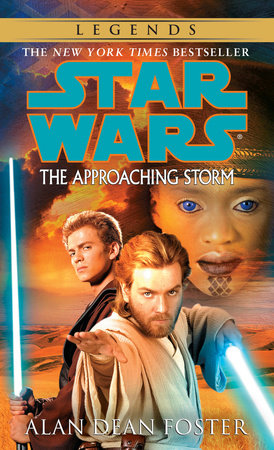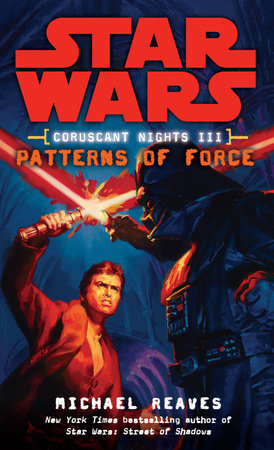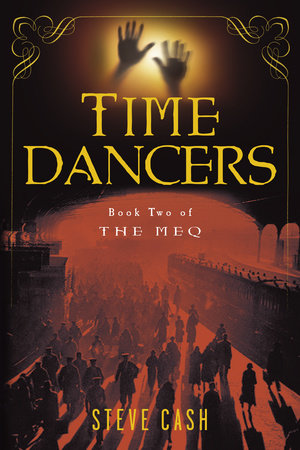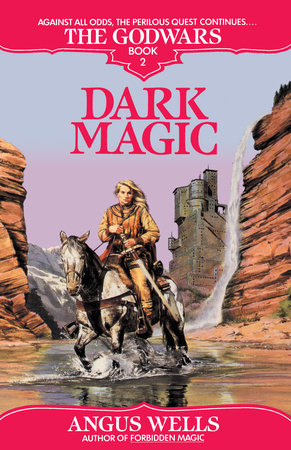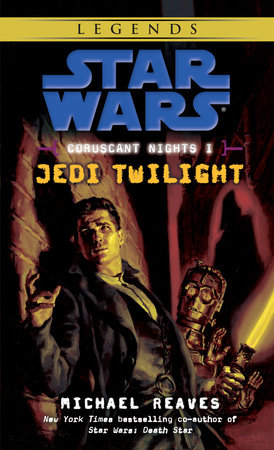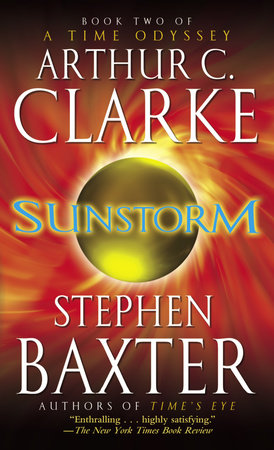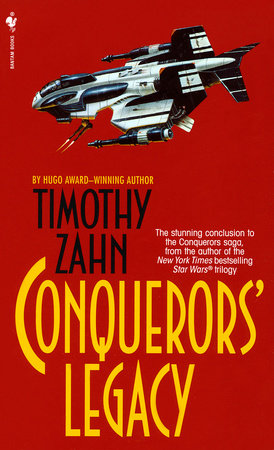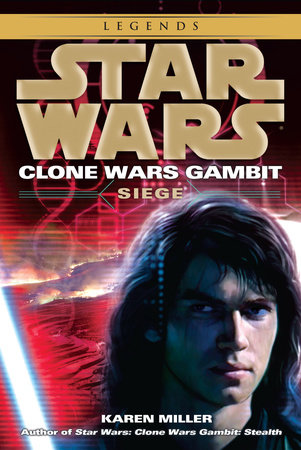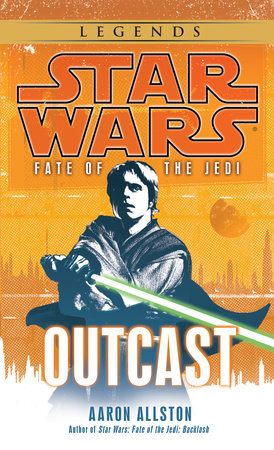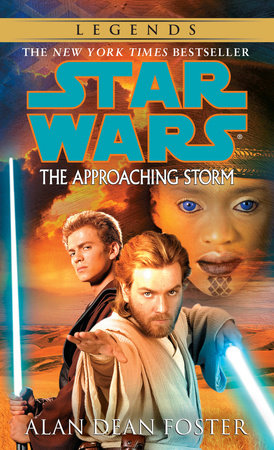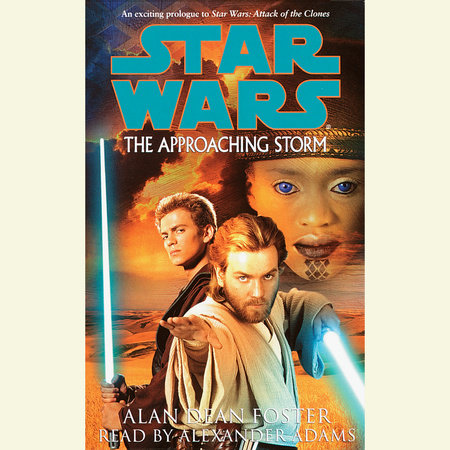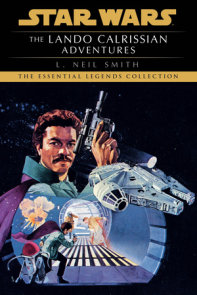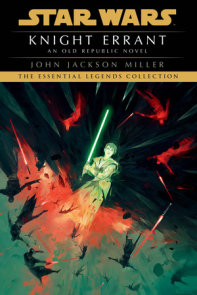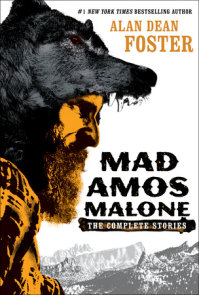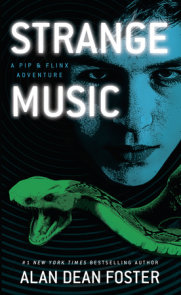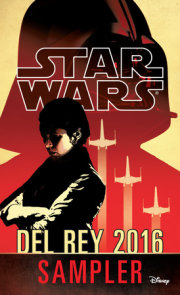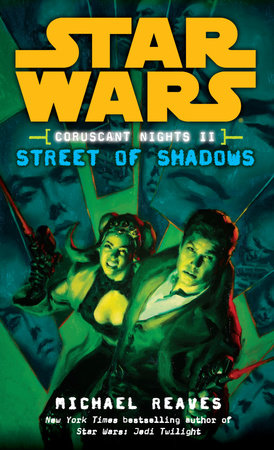Author Q&A
DEL REY TALKS TO ALAN DEAN FOSTER, AUTHOR OF STAR WARS: THE APPROACHING STORM
DEL REY: Writing a novel in the STAR WARS universe must be a great deal of fun but it must also be a complicated job. What was there about the project that made it easy for you? What made it difficult?
ALAN DEAN FOSTER: What made it easy? Like any spin-off, you’re dealing with at least some existing characters and an existing universe. That’s a looonggg way from having to begin with a blank page. Makes getting started infinitely simpler. On the other hand, your ability to invent and improvise doesn’t allow you to go beyond established parameters. The more developed the universe/storyline you are working in, the less leeway you have to mess with it. Obviously, with something like Star Wars, nothing can be allowed to contradict what has gone before your story. When you’re dealing with a storyline that now involves several motion pictures and dozens of spin-off books, it becomes very complicated.
DR: There are a number of strong historical references here; Shu Mai and her cohorts could have been Byzantine courtiers, Ansion is viewed as the key piece in a domino effect much like Vietnam. Were you using specific times and places in earth’s history as models?
ADF: Not specifically. But I’m intrigued by the possibility that an essentially primitive society could maintain its traditions and way of life while still reaching a beneficial accommodation with a more technologically (and militarily) superior political entity. In the case of THE APPROACHING STORM, I’m referring specifically to the Alwari nomads. There are few, if any, instances in terrestrial history where this has proven to be possible. The kustom culture of the islanders of Tanna, in the country of Vanuatu, are one of the rare examples. The Himba of northern Namibia are attempting something similar, with (so far) mixed results.
As to Ansion being a “key” in a much vaster political conflict, history is replete with similar examples. Many great conflicts have small and seemingly insignificant beginnings that cause events to spiral out of the control of all the involved parties. World War I, for example. A forest may look imposing and invulnerable until somebody strikes one tiny match at the wrong time and place.
DR: What do you think made the islanders of Tanna and the Himba peoples able to withstand the onslaught of a superior culture? Did you use that in the case of the Alwari?
ADF: Yes, a little bit, though I used these ideas more extensively in a novel, THE HOWLING STORM, which was directly based on the history of the Tanna. In TAS I was intrigued by the idea of a nomadic culture that had found a way to preserve its customs when faced with a technologically superior group. Usually, a primitive people desperately tries to keep everything intact…and fails. In the Alwari, I wanted to create a group of people who had a strong identity, a solid notion of who and what they were. And, by the way, who were able to make a pact with the devil. The Alwari want to keep the familiar rhythms of their life, the structure that defines them and enjoy the benefits of being in the Republic at the same time. They were able to survive because they were able to join the “modern” world on their own terms. These are the people that give imperialists all manner of trouble.
DR: THE APPROACHING STORM takes place between THE PHANTOM MENACE and A NEW HOPE–and features Anakin and Obi-Wan. Was this somewhat daunting? Were there special problems? Was it scary to meet people’s expectations head-on like that?
ADF: Not at all. I love the opportunity to develop and add to characters, whether they’re mine or someone else’s. I’m particularly attracted to the character of Obi-Wan and his Jedi-Samurai code, training, and background. Only to the character, though. The ascetic life never had any personal appeal to me. For one thing, I like chocolate too much.
As for meeting people’s expectations, there is more I wanted to do with the characters than I was able to include. I’m sure that’s a conundrum that affects everyone who works within the Star Wars framework. Fans always want to know about the characters they love. But hey, it’s not my universe, and I have to respect the wishes of its owner. I am compelled to work within strict limitations. I have no problem with that–though I’ll argue for my favored options.
DR: Given that they are not your inventions, how did you find your way into their characters and motivations?
ADF: It can be difficult to find a continuous thread for one character when they are portrayed on screen by different performers. With the character of Obi-Wan, for example, I tried to imagine what the Alec Guinness Obi-Wan might have been like as a much younger man. When describing Obi-Wan’s actions and thoughts in TAS, I was as much cognizant of Guinness’s performance in A NEW HOPE as I was of the character as originally written. In writing TAS I tried to retain some of the little bits of business Guinness imparted to the character. His sly smile, for example. Nobody could muster a sly smile quite like Alec Guinness. In TAS, that becomes a notable characteristic of Obi-Wan as well, one that his companions as well as the reader can remark on. I also made him a little more impatient, just as any younger man would be.
With Anakin, I found myself faced with trying to expand an intermediary personality between the gleeful child of THE PHANTOM MENACE and the Darth Vader of A NEW HOPE. What makes a teenager go bad? Clearly, the events in ATTACK OF THE CLONES must lead up to Anakin’s eventual transformation into Darth Vader in SWIII. Part of my job in working with his character in TAS is to prepare followers of SW not only for Anakin’s character in CLONES, but also for the tremendously traumatic events that are going to overwhelm him in SWIII.
DR: In doing this kind of deep character examination, there must be times when a character almost comes to life and the writer discovers “surprise” information. Did this happen while you were writing THE APPROACHING STORM?
ADF: First of all, in TAS (I can’t speak about CLONES…sorry), Anakin is growing troubled, but he’s still first and foremost a Jedi padawan. A good guy. His difficult background afflicts him with more than the usual uncertainties, however. The surgeon who lifts himself out of the ghetto never forgets where he comes from. I was intrigued by how often I found myself having Anakin reflect on his origins, and how different they are from those of the usual Jedi padawan.
With the character of the Jedi Luminara Unduli, I was pleased with how she developed as a much more earthy character than the average Jedi, and how I was able to contrast this with the more austere Obi-Wan. Same thing for her padawan, Barriss Offee. The Jedi may be ascetics, but they’re still human.
DR: Obi-Wan’s story to the Yiwah is an interesting vignette about the interplay of reality and story–how much do you think about this while you’re writing?
ADF: It depends on the story. Some of what I write is taken directly from today’s headlines while other plots are more imagination-derived. It’s always difficult for writers to wholly divorce themselves from their upbringing and from the time and place in which they exist, whether it be Dumas writing about the Musketeers or Tolkien about Middle-earth. I’m no different.
As for Obi-Wan’s tale told to the Yiwah, I thought it would be fun to have him invent a story about his own reality, instead of ours.
